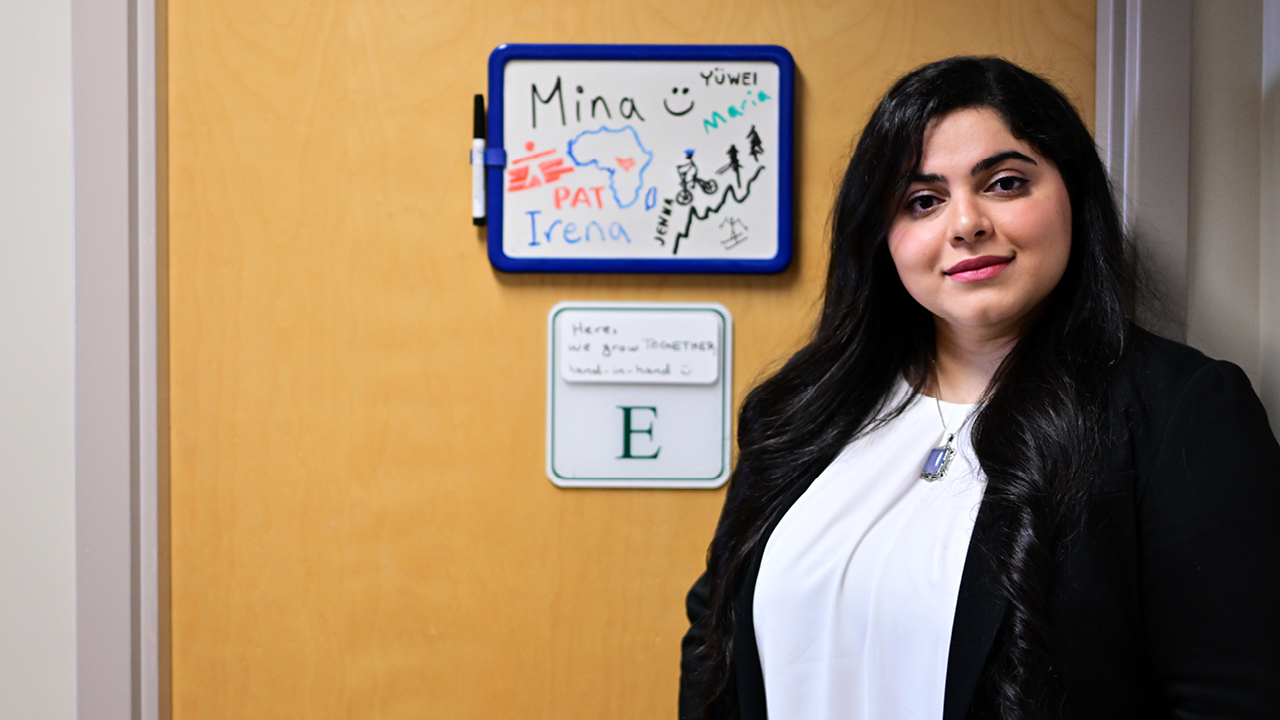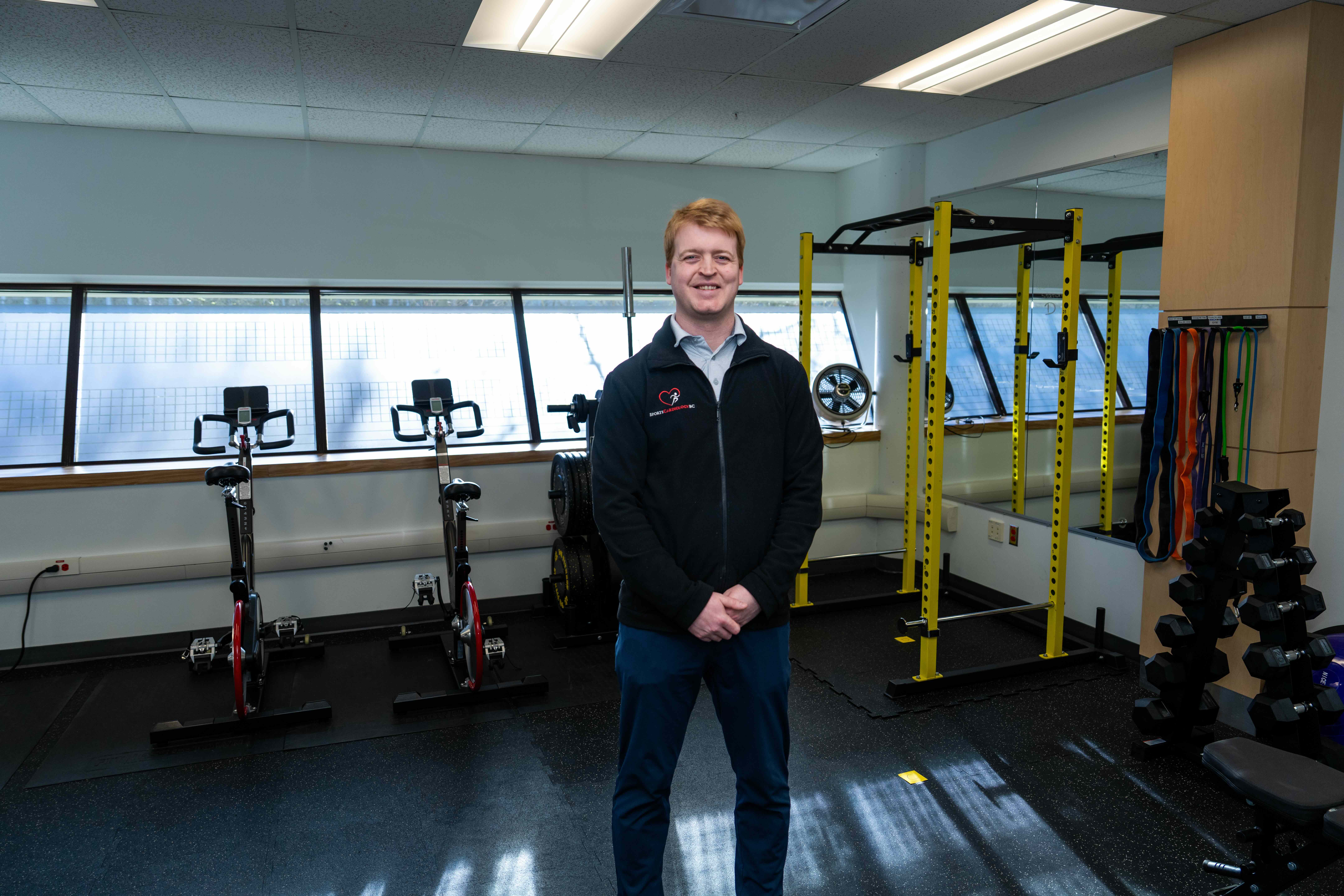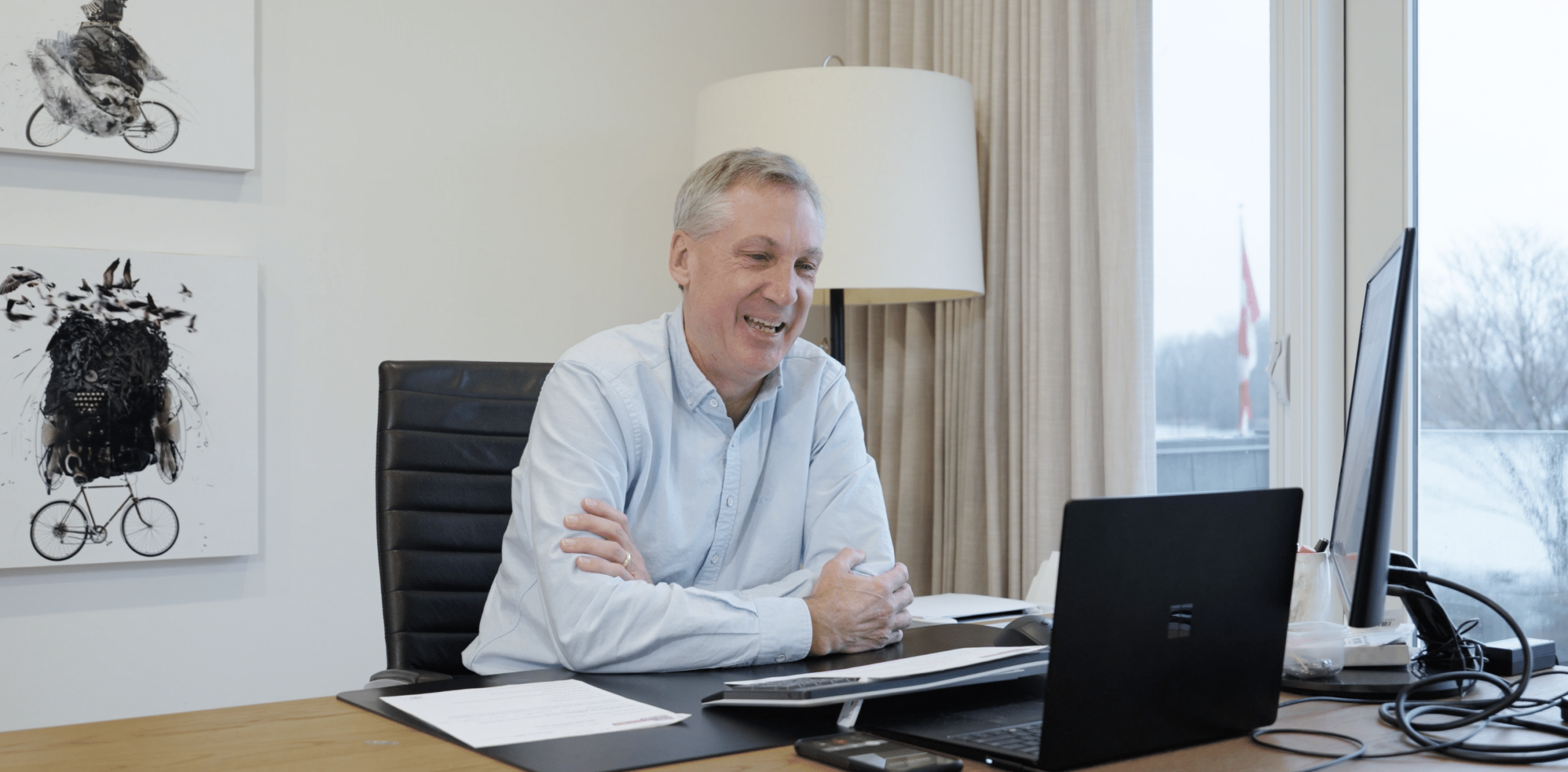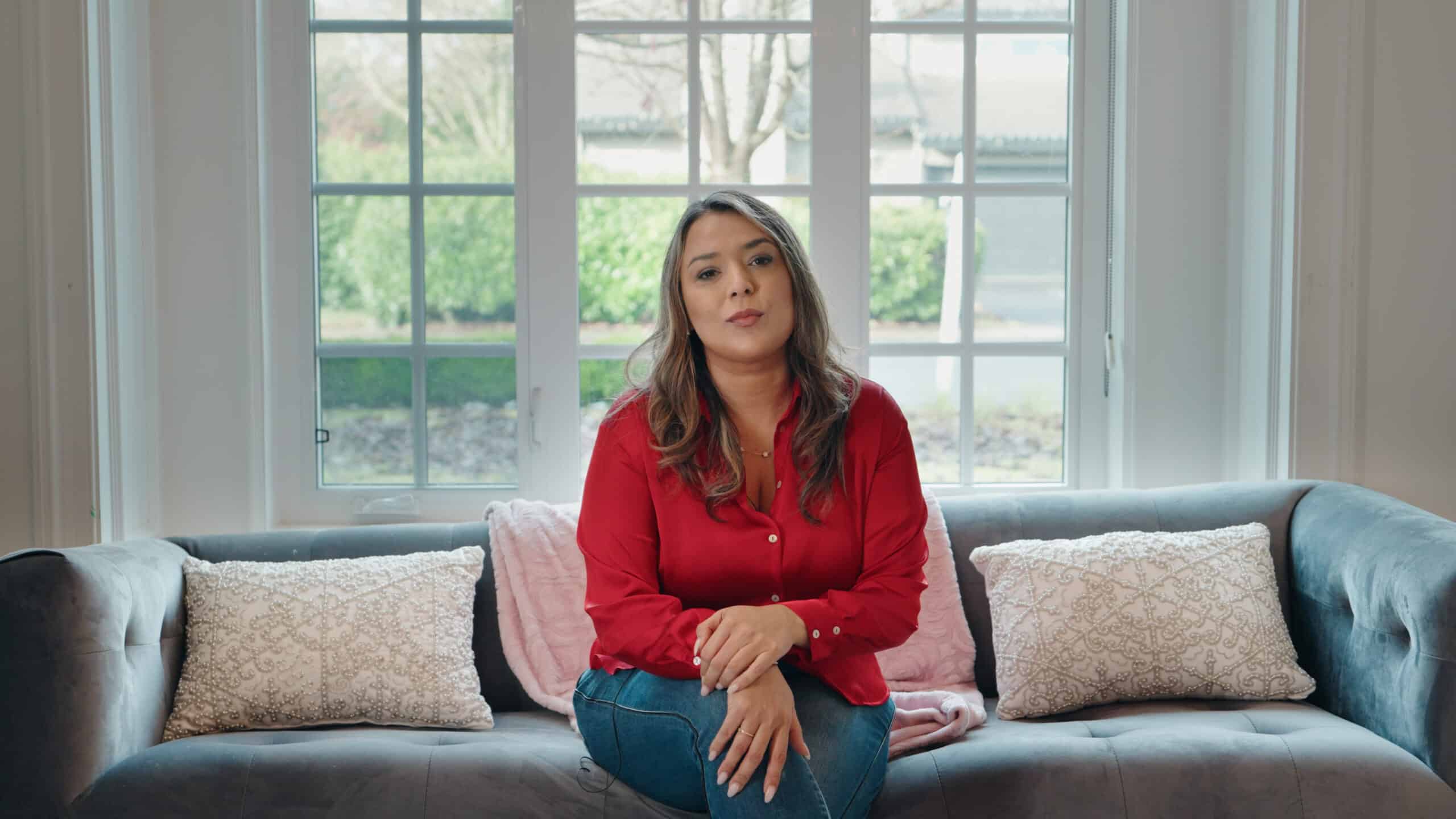Passionate cook, hiking enthusiast, and Research Coordinator
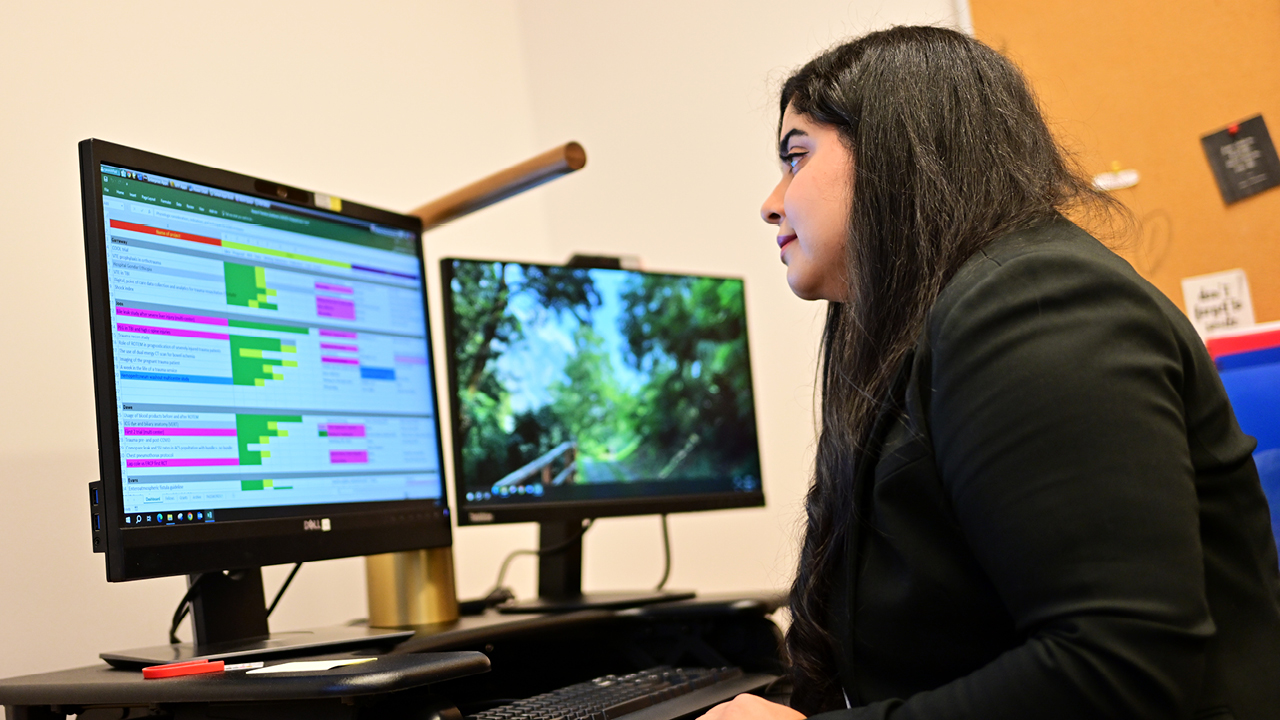
Mina Salehi has a joy for life. The Trauma and Acute Care Surgery Research Coordinator at VGH seems to cram everything she possibly can into her waking hours—Muay Thai and mixed martial arts training at dawn, working a 9 to 5 at VGH, studying in the evening, and in between finding time to pursue her pandemic-inspired passion for cooking.
She then spends her precious weekend down time finding new hikes to conquer around Metro Vancouver and the Fraser Valley with her boyfriend.
Her zest for life translates into her everyday work at VGH as part of the critical Trauma and Acute Care Surgery team. She joined the program in May 2021 after graduating with a Master of Science in Surgery at UBC. Since then, Mina has jumped headfirst into her role as a research coordinator.
“I lead the Trauma Services research team along with our Director of Research,” says Mina, who began her role as a one-person team, and has since grown to 27 researchers, fellows, and students. “If we get new students, I have to train them. If we get new fellows, I have to train them. And then there’s the research projects which all need management.”
Leading the teams
Mina manages all 70-plus research projects happening within Trauma Services, at the time of this writing.
“Anything can happen. It’s completely unpredictable,” she says. “Some days I have back-to-back meetings booked and it goes exactly as planned. Other days, it takes me into a thousand different directions. And I love it.”
Mina’s days are spent between hands-on work and managing people—those researchers, students, and fellows—to provide them with the knowledge, resources and tools necessary to do their work effectively.
Despite the sheer number of projects, she is excited to see where the fruits of their labour will take them.
Pursuing passions
In her two years since starting this role, Mina has discovered two areas she adores. First is the Global Surgery Lab (see more in our cover story, page 9), an interdisciplinary, inclusive, and diverse group that aims to improve knowledge of and access to surgical care in underserved communities through innovative, anti-colonialistic, and equitable educational platforms and research projects.
The other is in Artificial Intelligence (AI) and digital health. Both of which Mina believes translate to improved care for rural and underserved communities. And she would know—she used to be a physician in rural Iran.
“There’s really not much of equality or equity in health care for those in rural areas,” says Mina. “And I learned of this problem in my practice. But if we can merge AI and digital health together, we can really improve it.”
“If Uber can bring my food, we can bring health care to patients, too,” adds Mina. “These are the two big pillars of my work that I really love.”
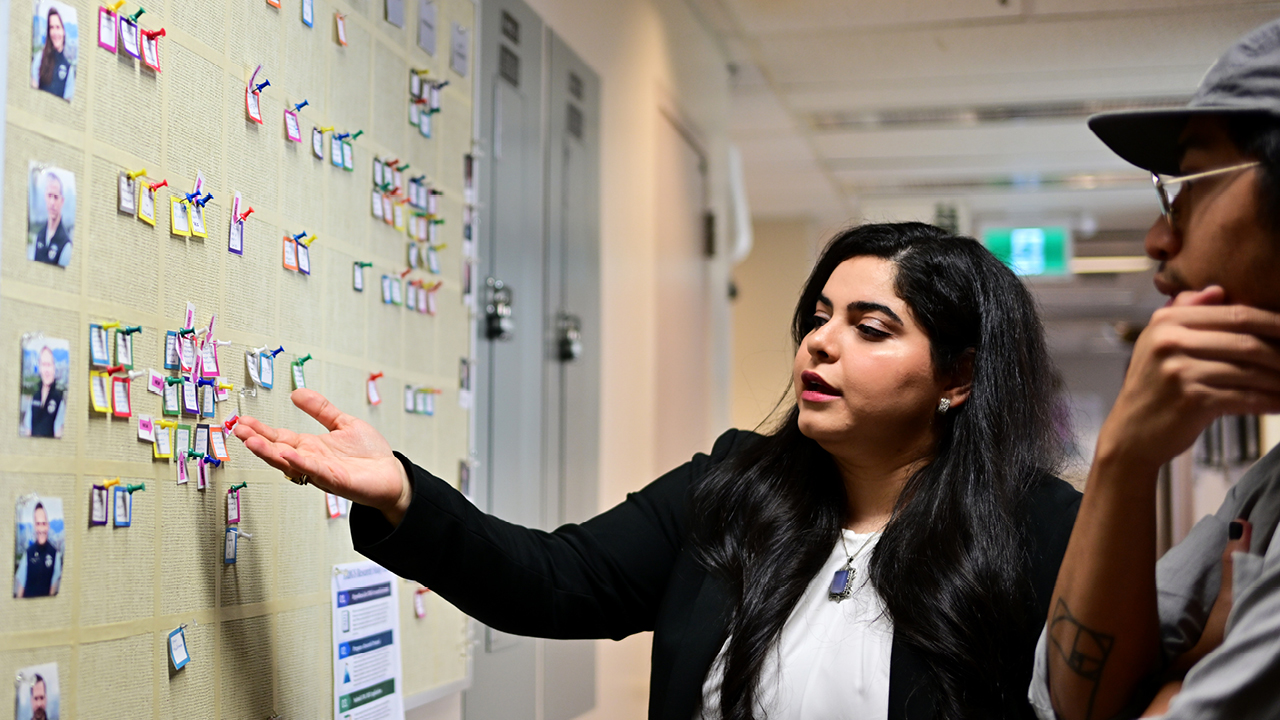
Donor-Funded Trauma Research Projects
Can automated data analysis be used to better treat patients?
In a multi-centre collaboration across North America, researchers at VGH are looking at whether a real-time, digital platform can be used to better support patient care. Right now, they are comparing the program’s recommendations to old-fashioned patient chart systems.
Can AI be used to predict a patient’s length of stay?
Researchers are comparing the accuracy and precision of several AI algorithms, and judging if they are capable of predicting when patients at VGH may be discharged. If proven effective, this would better allow the trauma teams to more efficiently manage care, plan ahead, and save resources.
Share this:
